Photo: Anadolu Agency
Click to read the article in Turkish
It's been 6 months since the earthquakes centered in Maraş shook Turkey.
The region hit by the February 6 earthquakes was neighbor to the Syrian border, and the number of refugees living in this region is very high.
And of course migrants/refugees have been among the most affected groups since the first moments of the earthquake until today.
So, what did refugees experience during and after the earthquake? With the politicians exploiting, using the anti-migrant sentiments? What happened to them?
Assoc. Prof. Dr. Didem Danış, the Founding President of the Migration Research Association (GAR), who prepared three separate reports on the topic of "Migration and Earthquake" along with Kristen Biehl and Enes Kablan, shared insights about the situation of earthquake-affected refugees with bianet.
Those who were invisible in the catastrophe: Migrants
Danış, who is also an Instructor at Galatasaray University, recalls the serious level of destruction in the earthquake zone: "There were also those invisible in this destruction. They were not taken into consideration by the general public much or only brought to attention in relation to crime..."
The "invisible" segments that Danış refers to are migrants, whose population in the earthquake-affected region was approximately 1.7 million, consisting mainly of Syrian migrants under temporary protection status. Danış mentioned that there are also migrants and refugees from other nationalities with different statuses, emphasizing, "Around 12% of the population affected by the earthquake in the region actually composed of migrants."
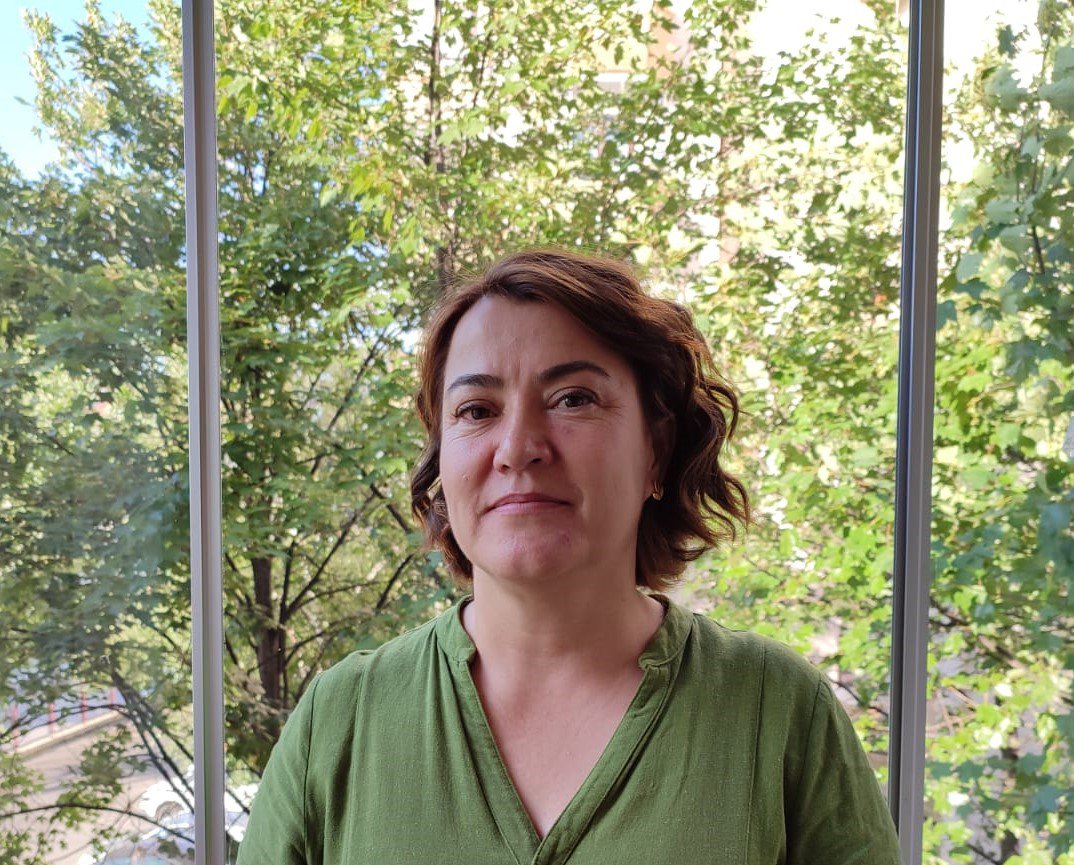
At least 7,300 migrants died in earthquakes
The Minister of Interior of the period, Süleyman Soylu announced on April 22 that 7,302 migrants lost their lives in February 6 earthquakes. However, just as in the pandemic period, there is significant distrust and uncertainty regarding the data after the earthquake.
"There is a strong belief among the Syrians that the actual number is much higher," says Danış. "Even based on these numbers, we see that Syrians comprise over 12% of the earthquake casualties," she says. Moreover, this migrant population, often living in the worst buildings and apartments, especially in ground or basement floor flats, became the group most severely affected by the destruction, she states.
Refugee populationAccording to the "Number of Syrians in Turkey, December 2022" report published by the Migrants' Association on January 9, 2023, the refugee populations in the provinces that are affected most by the earthquake are as follows:
|
Hate speech, misinformation, false news...
Danış emphasized that the refugees' experiences following the earthquake went beyond mere loss of life. "Immediately after the earthquake, migrants were accused of looting and theft. They were seriously subjected to hate speech. After all, you may recall that, following the allegations by Zafer Parti politicians accusing Syrians of looting, the Zafer Parti representative in the Samandağ district of Hatay had to clarify that this was not the case. In other words, there was a strong circulation of misinformation and false news," she reminded all.
"After a major shock like an earthquake, the public is susceptible to all kinds of misinformation. The heavy consequences of this hate speech persisted, despite efforts to combat it. We observed that even during the elections, which were held four months after the earthquake," Danış added.
Discrimination, exclusion, and hostility
According to Danış, who last visited Hatay in June, the approach towards refugees is still the same: "Syrians are still being portrayed in connection with crimes such as theft, she says.
"So in short, refugees were both severely affected by the loss of life and injuries caused by the earthquake and exposed to significant discrimination and hostility," Danış concludes.
In addition to the efforts of official institutions, humanitarian aid organizations and initiatives organized aid campaigns for the earthquake-affected region after the earthquake. Danış has some her observations that she shared:
"Migrants were openly excluded and discriminated against in the distribution of this aid. We know this not only from our own research but also from the studies of other colleagues. Migrants were excluded in the distribution of aid and their requests were ignored. We clearly saw that they were not included in the distribution of food aid, tents and locations in the tent cities."
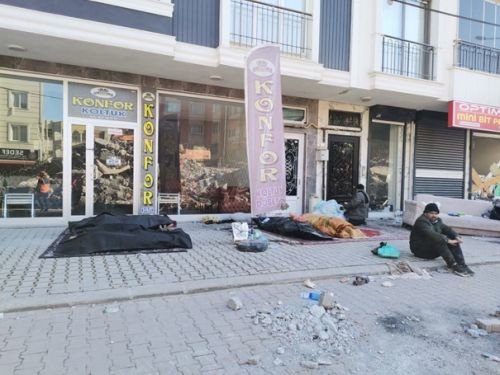
Photo: Duygu Kıt
Great chaos: Uncertainty
Danış describes that another problem was uncertainty. "We all know about the great chaos that occurred after the earthquake; the region was unreachable for several days, and nobody was able to get accurate information. And a week later, when an order began to be established, we saw that migrants were excluded from their information networks," Danış says.
In Turkey, Syrian refugees gain temporary protection status in the provinces where they are registered. They need travel permits to go elsewhere. After the earthquake, the Directorate General of Migration Management announced that Syrian refugees could leave the earthquake zone without a travel permit. However, they initially stated that this would be valid for two months and excluded Istanbul. A few weeks later, they extended the period and included Istanbul.
Between two fires: To leave or to stay?
Danış pointed out that communication channels were not transparent and effective enough in this regard, leading to a plethora of misinformation.
She continued, "This situation meant a great deal of uncertainty for Syrians in the earthquake-affected region. They were faced with various anxieties such as whether they should leave or stay, and if they left, whether they would face the risk of deportation during identity checks. Ultimately, they were caught between two fires: Should they stay in the earthquake zone with its housing and nutrition problems, or should they go to other provinces and live in uncertainty and great anxiety?"
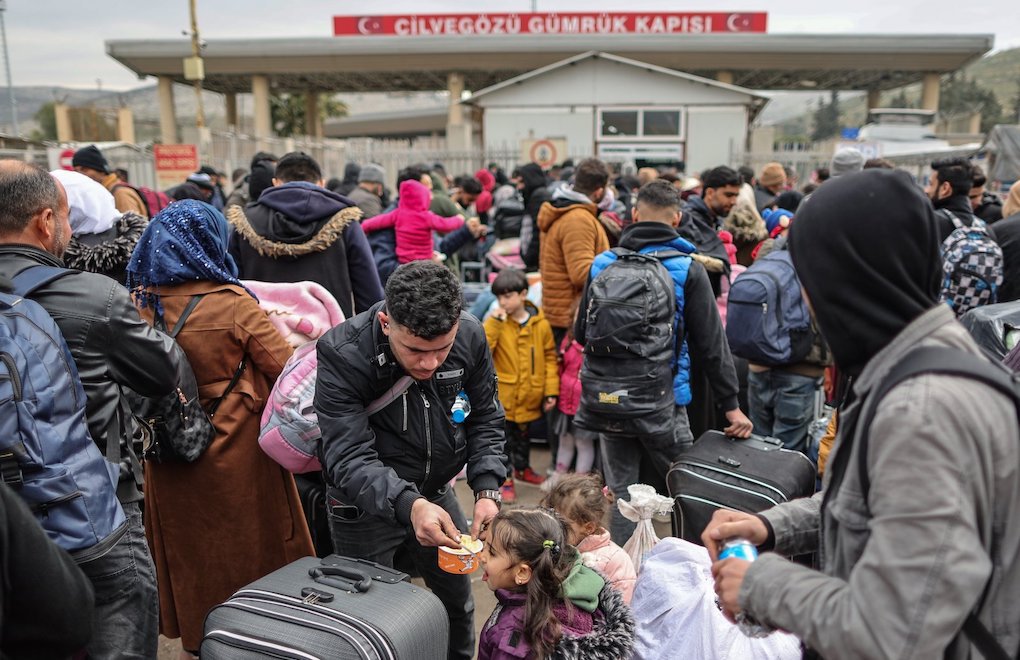
*Photo: Cilvegözü/Bab al-Hawa Border Crossing/The Syrian Observer
"They were not allowed on free planes"
Danış also discussed the population movements within the country after the earthquake.
"As you may remember, the state facilitated travel by planes and buses. There were also migrants among those who wanted to leave the earthquake zone, but no facilitation was provided for them except for the announcement regarding travel permits. Due to hate speech and refugee hostility, there are testimonies that they were not allowed on free planes in many cities, were excluded, and subjected to insults," she said.
Over half a million registered Syrians in İstanbul
The academician also drew attention to the situation of refugees in Istanbul, which was scrutinized in GAR's Migration and Earthquake III report, and said, "There are 531,000 registered Syrians in Istanbul. This constitutes 16% of Syrian origin population in Turkey. Many Syrians have relatives or acquaintances in Istanbul. Despite this, the number of arrivals to Istanbul remained much lower than expected. It is estimated that there are around 30,000 to 35,000 earthquake-affected refugees who came to Istanbul, including both those who obtained travel permits and those who did not," she said.
Very limited assistance for earthquake-affected refugees
İstanbul'a gelen depremzede mültecilerin az olmasının sebeplerinden birinin de kamu idaresinin İstanbul'a gelişleri caydırmaya yönelik kimi politikaları olduğunu belirten Danış, "Barınmayla ilgili çözüm üretmek isteyen STK'lerin bu konuda adım atmaması için yönlendirmeler yapıldı. Ayrıca İstanbul'da hem STK'lerin hem de belediyelerin depremzede mültecilere yönelik yardımları da çok sınırlı kaldı" dedi.
One reason for the small number of earthquake-affected refugees coming to Istanbul is the policies of the public administration trying to discourage arrivals, Danış pointed out.
"Moreover, both NGOs and municipalities provided very limited assistance to earthquake-affected refugees in Istanbul. Some NGOs made significant efforts regarding basic needs such as food and hygiene. However, they could not provide the most basic support, which is accommodation and shelter.
The main reason for this was the statements by the Directorate General of Migration Management. Both the statement that migrants cannot benefit from accommodation options outside the earthquake zone and the statement that 'NGOs should not provide accommodation and shelter support to earthquake-affected migrants."
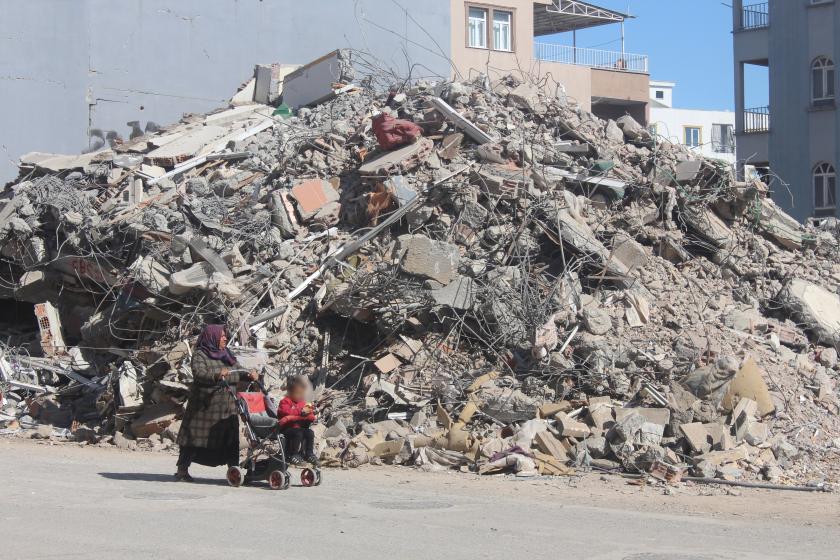
Photo: Elif Görgü/Evrensel
Refugee children have fallen behind in terms of school and education
Besides housing problems, there have also been disruptions in earthquake-affected refugee children's access to educational services in the cities they migrated to. Didem Danış, the Founding President of the Migration Research Association (GAR), states, "Families of migrants who left the earthquake zone faced significant difficulties in enrolling their children in schools in the cities they went to. As a result, children were left out of the education system. I fear that this will lead to an increase in the dropout rate and the number of child workers among migrant children."
Fundamental problems: Housing and accommodation
Migrants who left the earthquake zone and moved to other cities faced serious problems with housing and renting homes. The economic crisis in Turkey, high rental prices, and cost of living affected them as well. Additionally, due to being foreigners, they were either not given homes or were charged rent far above the market rate.
They were able to observe that the basic problems of earthquake-affected refugees, such as housing and education remained unsolved when they went to Hatay, Danış reflects.
"Refugees are either not admitted to tent cities or are placed in the outermost or worst parts. They cannot benefit from tent and food distribution. We must also consider the migrant population in our steps to heal the wounds, remembering that they are also earthquake victims. The migrant population is not a source of crime or trouble. On the contrary, they could provide a crucial workforce that is much needed at the moment."
Warning of 'emotional detachment'
Academician Danış emphasized that everyone and every group should be careful with their words and language.
"Earthquake-affected migrants are significantly hurt and they feel emotional detachment. Migrants are very anxious about the idea of being sent back because they have nowhere to return to. However, being 'unwanted' here is also a factor that complicates their lives, undermines their pride, and emotionally disconnects them from Turkey. For the past ten years, we have been building the process of integration and coexistence, in some way or other, step by step. Unfortunately, discrimination and hate speech, as well as opposition's statements of 'we will send them back' during election periods, blow down years of effort in an instant." she concludes.
(NT/PE)




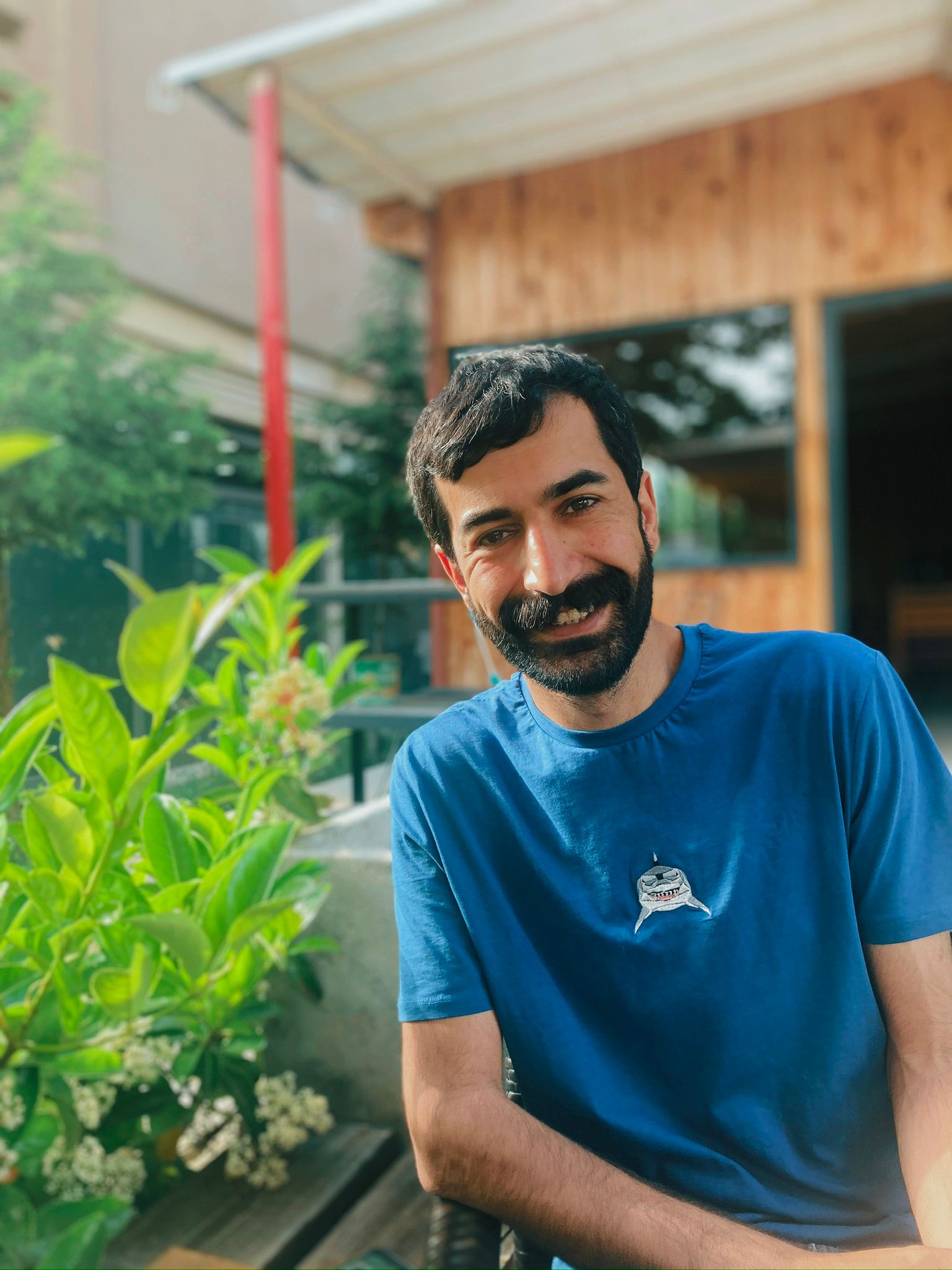
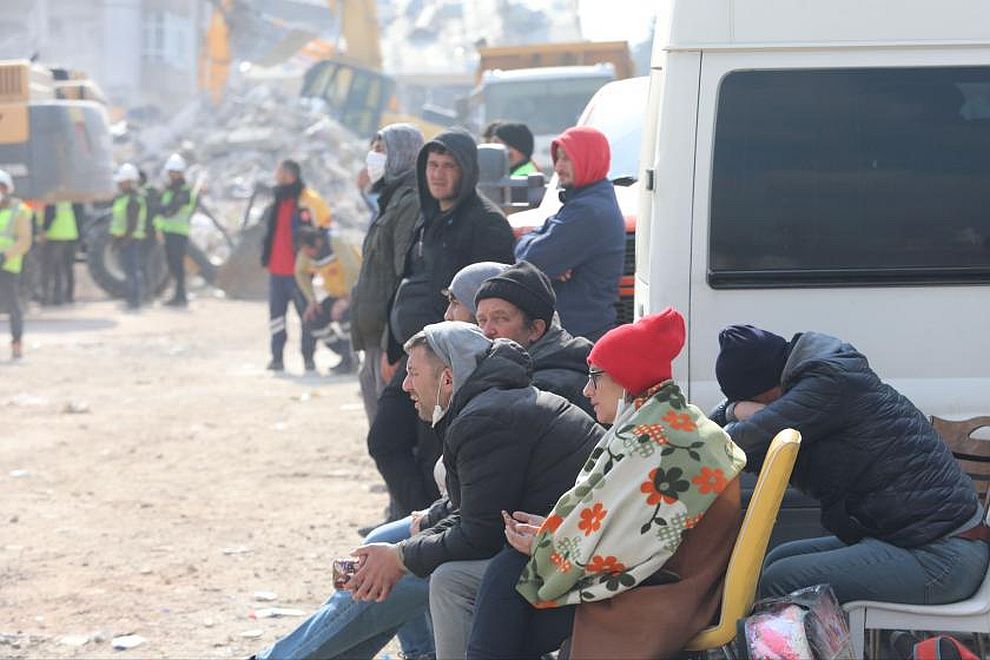
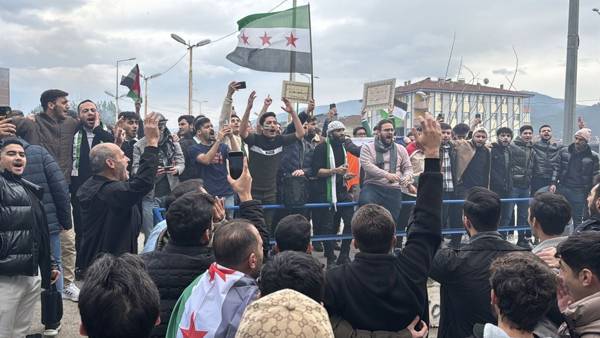
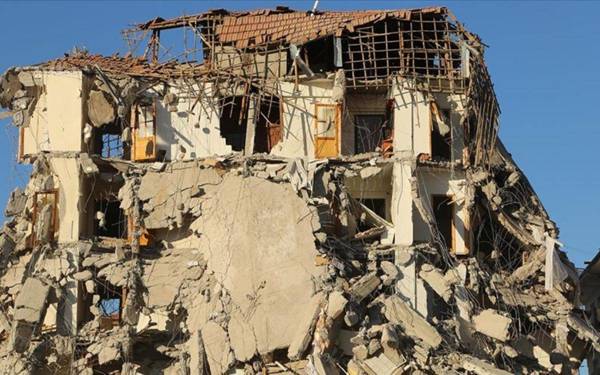


.jpg)

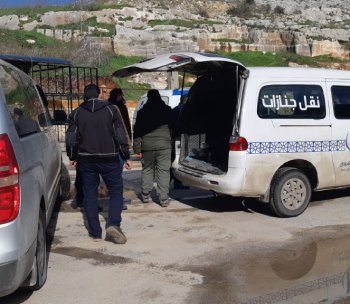
.jpg)
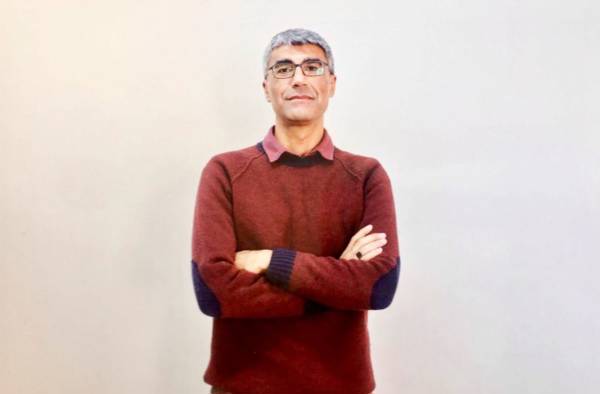
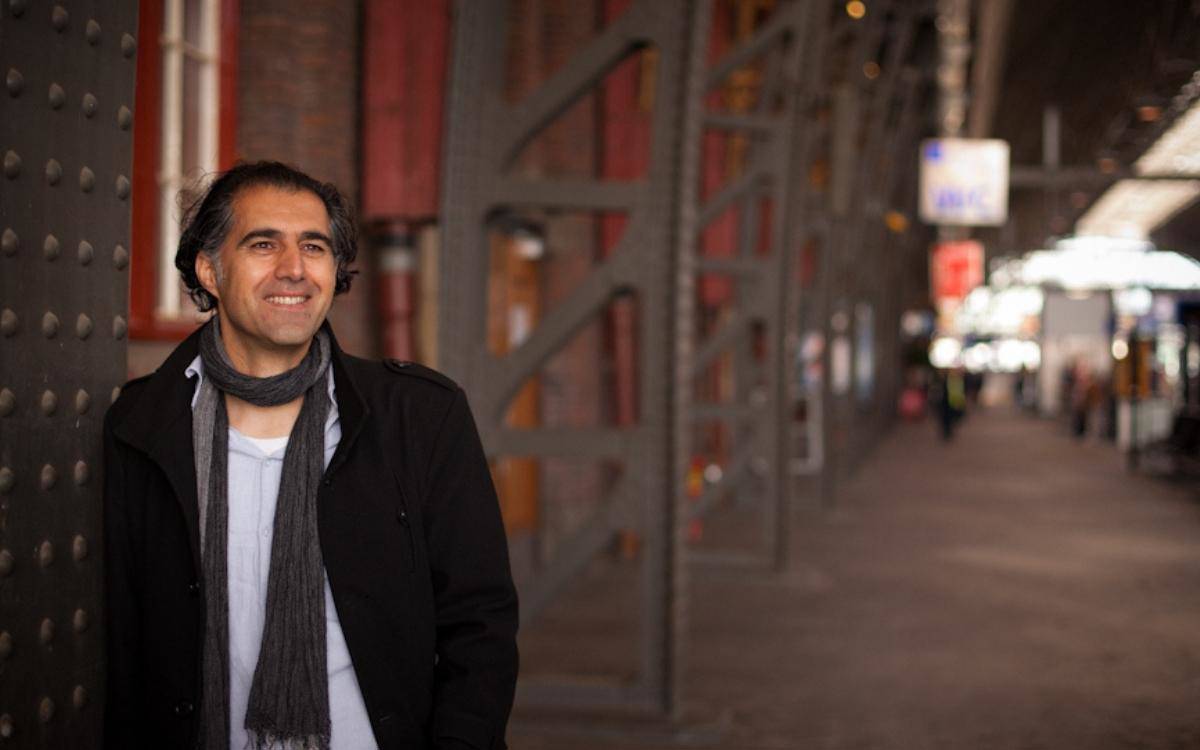
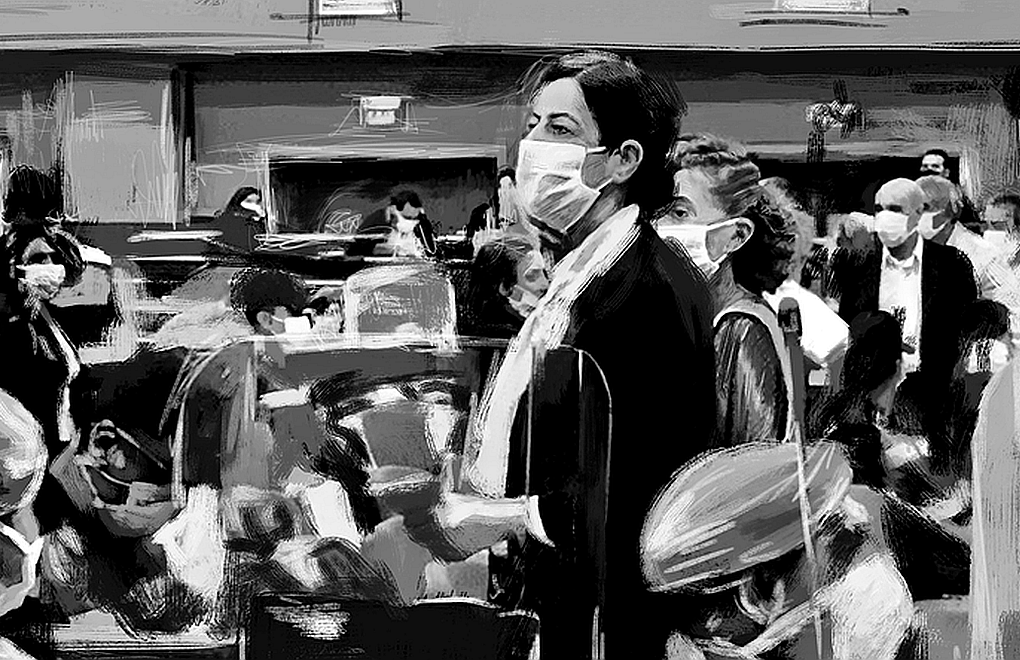
.jpg)
.jpg)